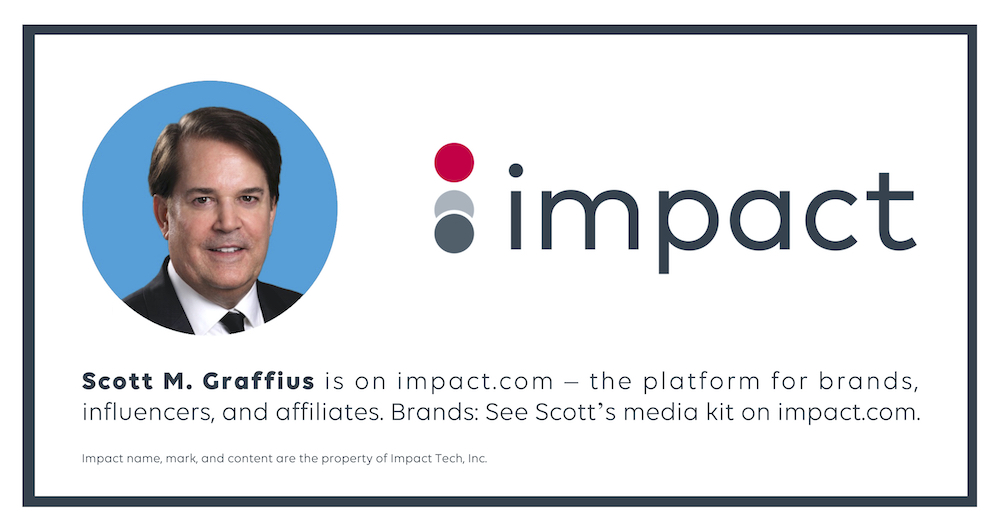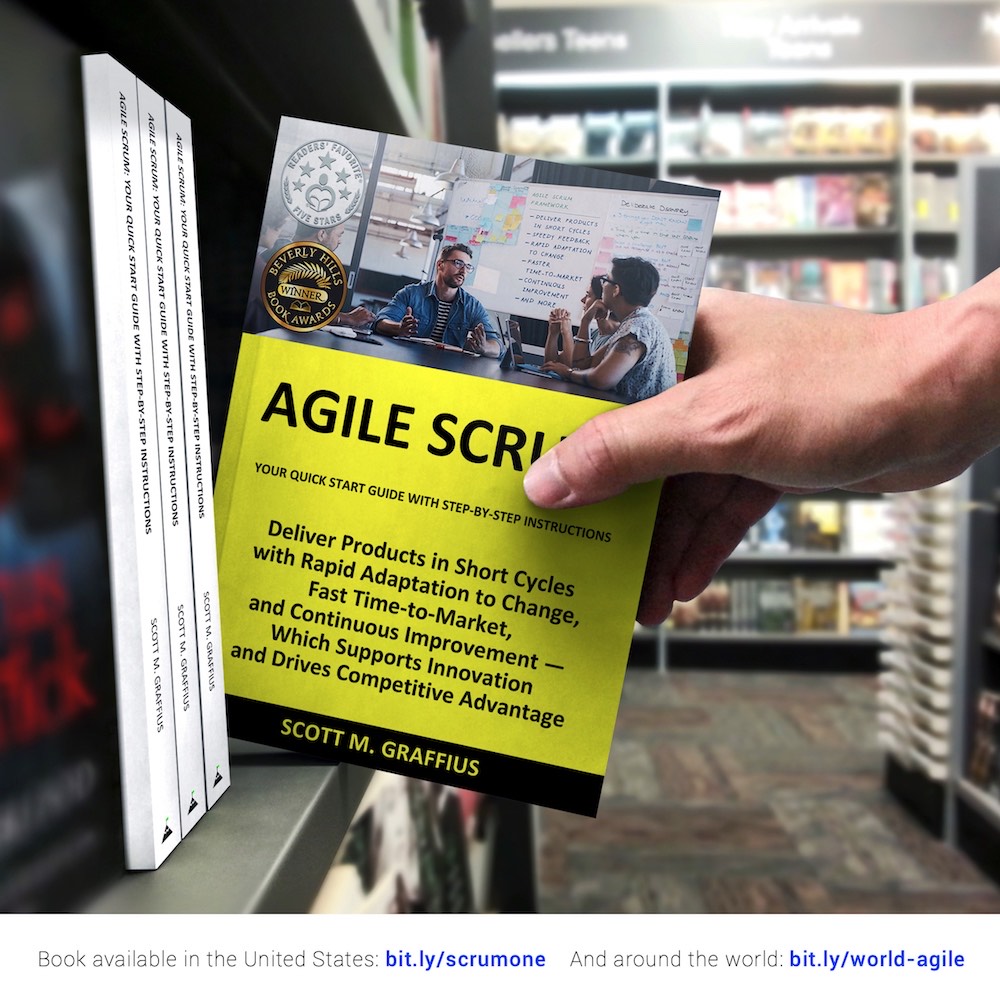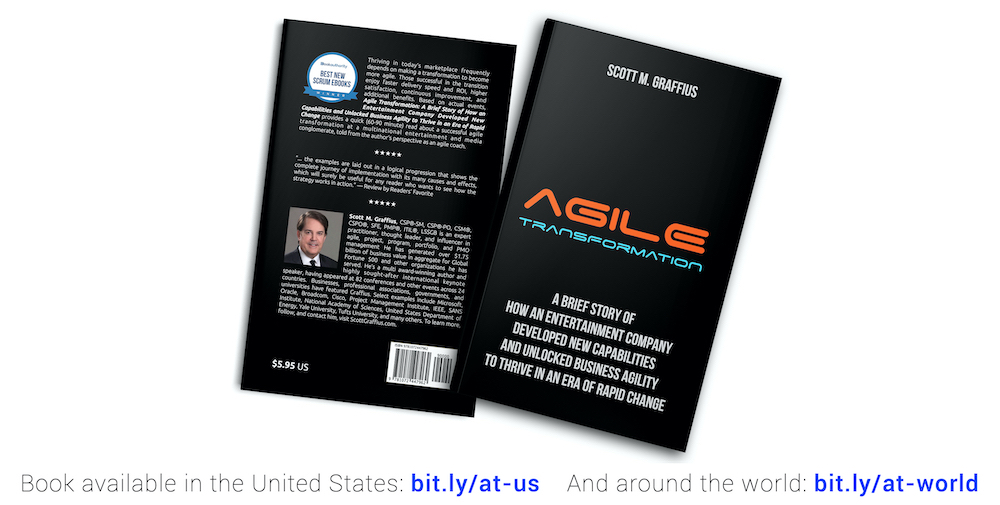Award-Winning Business Author
Scott M. Graffius' Intellectual Property Was Utilized by Robert W. Malone, MD
06 June 2024


Introduction
Intellectual property (IP)—including copyrights, trademarks, trade secrets, patents, and algorithms—is a strategic asset that provides significant value. IP rights ensure creators can benefit from their hard work, discovery, and innovation. Infringement can damage the marketability and value of the IP. IP rights are so important that IP theft is a federal crime.
Scott M. Graffius maintains, enforces, and protects his copyrights and other IP rights.
This article covers the news that Robert W. Malone, MD used Graffius’ copyrighted 'Phases of Team Development' intellectual property in his book. However:
- Malone did not request nor receive permission to use Graffius’ intellectual property;
- Malone used Graffius’ copyrighted content word-for-word;
- Malone used Graffius’ intellectual property commercially—in his book;
- Malone used a significant amount of Graffius' copyrighted property; and
- Malone did not cite, reference or otherwise attribute Graffius’ respective IP content to Graffius.
Ensuring the integrity of intellectual property is paramount to Graffius. He is resolute in protecting and enforcing his copyrights and other IP rights.
This article presents facts—including visuals and additional evidence—and a critical analysis of this consequential matter.

Overview of Graffius' Copyrighted 'Phases of Team Development' IP
Informed by the research of Bruce W. Tuckman, Ph.D. and Mary Ann C. Jensen, over 100 subsequent studies, and Scott M. Graffius' first-hand professional experience with, and analysis of, team leadership and performance, Graffius created his ‘Phases of Team Development’ IP. It’s a unique perspective on the five phases of team development — Forming, Storming, Norming, Performing, and Adjourning — and it’s inclusive of the characteristics and strategies for each phase.
Graffius published his 'Phases of Team Development' work as an article, among other mediums. The body of his article has text in typical — not bullet point — format. The typical format text by Graffius was used by Malone.
(For reference only, Graffius' same article includes a visual which incorporates a graph showing how performance varies by phase, as well as the characteristics and strategies for each phase. The visual has text in bullet-point format. Again, the body of the article has text in typical — not bullet point — format; that typical format text by Graffius was used by Malone.)
Graffius' ‘Phases of Team Development’ IP is registered with the United States Copyright Office.
Graffius initially developed his material in 2008, and he periodically refreshes it. In this case, the applicable edition is 2021. An example is here and other locations.
(For reference only, the most current [2024] edition of his 'Phases of Team Development' is here.)
Here’s a macro/wide view of Graffius' respective 2021 IP.

Here’s another macro/wide view of Graffius' respective 2021 IP, showing the main body of the article.

Here’s a zoomed-in view of Graffius' respective 2021 IP, showing the applicable text.

Here’s a zoomed-in view of Graffius' respective 2021 IP, showing his copyright information.

Graffius' copyright ownership details are clearly noted: "Copyright © 2021 Scott M. Graffius. All rights reserved. This material may not be published, broadcast, rewritten or redistributed without the express written permission of Scott M. Graffius."
Graffius presented his 2021 'Phases of Team Development' IP via multiple channels/platforms in 2021. Select examples include:
- Graffius’ blog (January 4, 2021) at: here.
- Graffius’ ResearchGate account (January 4, 2021) at: here.
- Graffius’ Twitter (now called X) account; one of many examples is (January 17, 2021) at: here.
- And some of Graffius’ appearances at conferences and other events; one example is Graffius’ talk at the IEEE’s ‘IEEE Day’ 2021 Event (October 5, 2021), a recording of his session is at: here.
Conference organizers, businesses, professional organizations, government agencies, and universities around the world engage Graffius to deliver compelling talks and workshops. To date, he's presented sessions at 91 conferences and other events across 25 countries:
- Armenia,
- Australia,
- Brazil,
- Canada,
- Czech Republic,
- Finland,
- France,
- Germany,
- Greece,
- Hong Kong,
- Hungary,
- India,
- Ireland,
- Lithuania,
- Luxembourg,
- Nepal,
- Netherlands,
- New Zealand,
- Norway,
- Romania,
- Sweden,
- Switzerland,
- United Arab Emirates,
- United Kingdom,
- and the United States.
His 'Phases of Team Development' IP is central and key to many of those sessions. Graffius' rate card and a listing of his engagements are here and here, respectively.

With an authorization/license from Graffius, many organizations have featured and used his 'Phases of Team Development' IP. Select examples include:
- Adobe,
- American Management Association,
- Amsterdam Public Health Research Institute,
- Boston University,
- Cisco,
- Deimos Aerospace,
- DevOps Institute,
- Ford Motor Company,
- Hasso Plattner Institute,
- IEEE,
- London South Bank University,
- Microsoft,
- New Zealand Government,
- Torrens University Australia,
- UK Sports Institute,
- University of Galway Ireland,
- U.S. National Park Service,
- U.S. Tennis Association,
- Virginia Tech,
- Yale University,
- and many others.
Robert W. Malone's Unauthorized, Word-for-Word, Commercial, Significant Amount, and Unattributed Use of Graffius' Intellectual Property

As already covered, Graffius' copyright ownership details are clearly noted: "Copyright © 2021 Scott M. Graffius. All rights reserved. This material may not be published, broadcast, rewritten or redistributed without the express written permission of Scott M. Graffius."
Robert W. Malone, MD used Scott M. Graffius’ copyrighted ‘Phases of Team Development’ intellectual property in his 2022 book, Lies My Gov’t Told Me: And the Better Future Coming. However:
- Malone did not request nor receive permission to use Graffius’ intellectual property;
- Malone used Graffius’ copyrighted content word-for-word;
- Malone used Graffius’ intellectual property commercially—in his book;
- Malone used a significant amount of Graffius' copyrighted property; and
- Malone did not cite, reference or otherwise attribute Graffius’ respective IP content to Graffius.
Evidence is archived. Visuals and additional information follows.
A side-by-side comparison is below. It shows Graffius' 2021 copyrighted content, on the topic of Forming. It also shows what Malone has in his 2022 book on the same topic: Malone uses Graffius' content word-for-word.

A side-by-side comparison is below. It shows Graffius' 2021 copyrighted content, on the topic of Storming. It also shows what Malone has in his 2022 book on the same topic: Malone uses Graffius' content word-for-word.

A side-by-side comparison is below. It shows Graffius' 2021 copyrighted content, on the topic of Norming. It also shows what Malone has in his 2022 book on the same topic: Malone uses Graffius' content word-for-word.

A side-by-side comparison is below. It shows Graffius' 2021 copyrighted content, on the topic of Performing. It also shows what Malone has in his 2022 book on the same topic: Malone uses Graffius' content word-for-word.

A comparison is also delineated next.
🟢 From Graffius' copyrighted 2021 'Phases of Team Development' IP, his content on Forming includes:
"include displaying eagerness, socializing, generally polite tone, sticking to safe topics, being unclear about how one fits in, and some anxiety and questioning."
🔴 From page 376 of Malone's 2022 book, Forming includes:
"include displaying eagerness, socializing, generally polite tone, sticking to safe topics, being unclear about how one fits in, and some anxiety and questioning."
🟢 From Graffius' copyrighted 2021 'Phases of Team Development' IP, his content on Storming includes:
"resistance, lack of participation, conflict related to differences of feelings and opinions, competition, high emotions, and starting to move towards group norms."
🔴 From page 376 of Malone's 2022 book, Storming includes:
"resistance, lack of participation, conflict related to differences of feelings and opinions, competition, high emotions, and starting to move towards group norms."
🟢 From Graffius' copyrighted 2021 'Phases of Team Development' IP, his content on Norming includes:
"improved sense of purpose and understanding of goals, higher confidence, improved commitment, team members are engaged and supportive, relief—lowered anxiety, and starting to develop cohesion."
🔴 From page 376 of Malone's 2022 book, Norming includes:
"improved sense of purpose and understanding of goals, higher confidence, improved commitment, team members are engaged and supportive, relief—lowered anxiety, and starting to develop cohesion."
🟢 From Graffius' copyrighted 2021 'Phases of Team Development' IP, his content on Performing includes:
"Characteristics of Performing include higher motivation, elevated trust and empathy, individuals typically deferring to the team's needs, effective production, consistent performance, and demonstrations of interdependence and self-management (also referred to as self-organization)."
🔴 From page 376 of Malone's 2022 book, Performing includes:
"Characteristics of Performing include higher motivation, elevated trust and empathy, individuals typically deferring to the team's needs, effective production, consistent performance, and demonstrations of interdependence and self-management (also referred to as self-organization)."
The indisputable proof shows that Malone used Graffius' copyrighted property.

Conclusion
Again, Graffius' copyright ownership details are clearly noted: "Copyright © 2021 Scott M. Graffius. All rights reserved. This material may not be published, broadcast, rewritten or redistributed without the express written permission of Scott M. Graffius."
Robert W. Malone, MD used Scott M. Graffius’ copyrighted ‘Phases of Team Development’ intellectual property in his book and:
- Malone did not request nor receive permission to use Graffius’ intellectual property;
- Malone used Graffius’ copyrighted content word-for-word;
- Malone used Graffius’ intellectual property commercially—in his book;
- Malone used a significant amount of Graffius' copyrighted property; and
- Malone did not cite, reference or otherwise attribute Graffius’ respective IP content to Graffius.
What Malone did was alarming and profoundly concerning. When others have done something not to Malone's liking or what he thought was wrong, Malone has been known to publicly criticize and characterize them as having "no moral compass." Examples are here and here.
Ensuring the integrity of intellectual property is paramount to Graffius. He is resolute in protecting and enforcing his copyrights and other IP rights.
This case is currently open.
Read on for additional information, including:
- About Scott M. Graffius;
- About Robert W. Malone;
- About Book by Robert W. Malone;
- About Copyright and Other Intellectual Property Rights;
- References/Sources; and
- How to Cite This Article.

About Scott M. Graffius

Scott M. Graffius, PMP, SA, CSP-SM, CSP-PO, CSM, CSPO, ITIL, LSSGB is an agile project management practitioner, consultant, creator, multi-award-winning author, and international public speaker. Founder and CEO of Exceptional PPM and PMO Solutions™ and subsidiary Exceptional Agility™, he has generated over $1.9 billion for Global Fortune 500 businesses and other organizations he has served. Graffius and content from his books, talks, workshops, and more have been featured and used by Microsoft, Oracle, Broadcom, Cisco, Gartner, Project Management Institute, IEEE, National Academy of Sciences, U.S. Department of Energy, U.S. National Park Service, U.S. Tennis Association, Yale University, and others. He delights audiences with dynamic and engaging talks and workshops on agile project management, AI, video game development, strategic alignment, the science of high performance teams, and more. To date, he's presented sessions at 91 conferences and other events across 25 countries. His full bio is available here.



About Robert W. Malone
Robert Wallace Malone is a physician and biochemist. His early work focused on mRNA technology, pharmaceuticals, and drug repurposing research. He's the author of the bestselling book, Lies My Gov't Told Me: And the Better Future Coming. Malone used Scott M. Graffius’ copyrighted ‘Phases of Team Development’ intellectual property in his book. Malone did not request nor receive permission to use Graffius’ intellectual property (IP). Yet, Malone used Graffius’ IP word-for word; he used it commercially—in his book, for his financial gain; he used a significant amount of it; and he did not cite, reference or otherwise attribute Graffius’ respective IP content to Graffius.

About Book by Robert W. Malone
Malone, Robert W. (2022, December). Lies My Gov't Told Me: And the Better Future Coming. ISBN-13: 978-1510773240. New York City, New York: Skyhorse Publishing.

About Copyright and Other Intellectual Property Rights
For copyright/IP infringement cases, it is recommended that you consult a qualified attorney.
Infringement of copyright and other intellectual property (IP) rights is a deplorable act of intellectual theft, displaying a flagrant disregard for professionalism, morality, ethics, and the law. It undermines the hard work and innovation of others and is a disgraceful, unprofessional, dishonest, immoral, unethical, and illegal practice. IP rights are so important that IP theft is a federal crime.
To learn about copyrights, visit the United States Copyright Office’s website at https://www.copyright.gov.
The Reporting Intellectual Property Crime: A Guide for Victims of Copyright Infringement, Trademark Counterfeiting, and Trade Secret Theft publication by the Criminal Division of the U.S. Department of Justice is a good resource.
The Intellectual Property Rights (IPR) Center coordinates the U.S. government’s response to intellectual property crimes. Visit their website at https://www.iprcenter.gov to learn more.
See the References/Sources section for additional information.


References/Sources
Select bibliography:
- Bartlett, Tom (2021, August 12). The Vaccine Scientist Spreading Vaccine Misinformation. The Atlantic. Available at: https://www.theatlantic.com/science/archive/2021/08/robert-malone-vaccine-inventor-vaccine-skeptic/619734/.
- Blaskovic, Andrew K.; Rusk, John-David; Parker, Victor C.; and Payne, Bryson R. (2022). Cybercrime and Intellectual Property Theft: An Analysis of Modern Digital Forensics. In book: Proceedings of the Future Technologies Conference (FTC) 2022, Volume 2. DOI: 10.1007/978-3-031-18458-1_36.
- Dolgin, Elie (2021, September 14). The Tangled History of mRNA Vaccines. Nature. Available at: https://www.nature.com/articles/d41586-021-02483-w.
- Dyer, Jeff; Furr, Nathan; Lefrandt, Chris; and Howell, Taeya (2023, January 17). Innovation Depends on Intellectual Honesty. MIT Sloan Management Review. Available at: https://sloanreview.mit.edu/article/why-innovation-depends-on-intellectual-honesty/.
- Exceptional PPM and PMO Solutions (n.d.). Rate Card for 2023-2024. Available at: https://scottgraffius.com/resources/Exceptional-PPM-and-PMO-Solutions-Rate-Card-for-2023-2024-v23110907.pdf.
- Graffius, Scott M. (2021, January 4). Phases of Team Development (Update for 2021). DOI: 10.13140/RG.2.2.22040.42246.
- Graffius, Scott M. (2021, January 4). Using Bruce Tuckman's Phases of Team Development to Help Your Team Grow and Advance: 2021 Update. Available at: https://www.scottgraffius.com/blog/files/team-21.html.
- Graffius, Scott M. (n.d.). Intellectual Property (IP). Available at: https://www.scottgraffius.com/intellectual-property.html.
- Graffius, Scott M. (n.d.). Public Speaker. Available at: https://scottgraffius.com/publicspeaker.html.
- Hartline, Devlin (2016, September 26). Criminal Copyright Infringement is Crime of "Moral Turpitude." George Mason University Center for Intellectual Property x Innovation Policy. Available at: https://cip2.gmu.edu/2016/09/26/criminal-copyright-infringement-is-crime-of-moral-turpitude/.
- Huppert, Elizabeth; and Levine, Emma (2023, August 31). The Rise of Dishonest Leaders: Causes and Solutions. Academy of Management Perspectives, 37 (3). DOI: 10.5465/amp.2021.0063.
- Kenton, Will (2022, August 23). What Is a Whistleblower? Protections, Law, Importance, and Example. Available at: https://www.investopedia.com/terms/w/whistleblower.asp.
- Malone, Robert W. (2023, August 8). Demonic Nihilism. Substack. Available at: https://rwmalonemd.substack.com/p/demonic-nihilism.
- Malone, Robert W. (2023, January 6). Project Veritas has Broken Pfizer's Gain-of-Function Research Program Wide Open. Substack. Available at: https://rwmalonemd.substack.com/p/project-veritas-has-broken-pfizers.
- Malone, Robert W. (2022, December). Lies My Gov't Told Me: And the Better Future Coming. ISBN-13: 978-1510773240. New York City, New York: Skyhorse Publishing.
- McGregor, Jena. (2017, May 15). More CEOs are Getting Forced Out for Ethical Violations. Washington Post. Available at: https://www.washingtonpost.com/news/on-leadership/wp/2017/05/15/more-ceos-are-getting-forced-out-for-ethics-violations/.
- National Intellectual Property Rights Coordination Center (IPR Center) (n.d.). About the Center. Available at: https://www.iprcenter.gov/about.
- Popomaronis, Tom (2020, August 20). These 11 Famously Disgraced CEOs Have Entered the Reputation Hall of Shame. Entrepreneur. Available at: https://www.entrepreneur.com/business-news/these-11-famously-disgraced-ceos-have-entered-the/354739.
- Rivera, Kristin; and Karlsson, Per-Ola (2017, June 6). CEOs Are Getting Fired for Ethical Lapses More Than They Used To. Harvard Business Review. Available at: https://hbr.org/2017/06/ceos-are-getting-fired-for-ethical-lapses-more-than-they-used-to.
- Smith, Isaac H.; Kouchaki, Maryam; and Wareham, Justin (2021, April 14). The Price Leaders Pay for Cutting Ethical Corners. MIT Sloan Management Review. Available at: https://sloanreview.mit.edu/article/the-price-leaders-pay-for-cutting-ethical-corners/.
- Steffen, Thomas (2019, May 24). For CEOs, Integrity Is the Best Policy. Yale School of Management. Available at: https://insights.som.yale.edu/insights/for-ceos-integrity-is-the-best-policy.
- Sterne, Robert; and Chaplick, Trevor (2005, February). Why Directors Must Take Responsibility for Intellectual Property. Intellectual Asset Management Magazine. Available at: https://www.wsgr.com/PDFSearch/IP_RESPONSIBILTY.pdf.
- Stim, Richard (2024). Patent, Copyright & Trademark: An Intellectual Property Desk Reference (18th Edition). Berkeley, California: Nolo.
- Stubben, Stephen; and Welch Kyle (2018, November 14). Whistleblowers Keep Companies Healthy. Harvard Business Review. Available at: https://hbr.org/2018/11/research-whistleblowers-are-a-sign-of-healthy-companies.
- Thomson Reuters (2022, December 16). Copyright Litigation 101. Available at: https://legal.thomsonreuters.com/blog/copyright-litigation-101/.
- United States Copyright Office (USCO) (n.d.). Can I Use Someone Else's Work? Can Someone Else Use Mine? (Excerpt: "In cases of willful infringement for profit, the U.S. Attorney may initiate a criminal investigation.") Available at: https://copyright.gov/help/faq/faq-fairuse.html.
- United States Copyright Office (USCO) (n.d.). Welcome to the U.S. Copyright Office. Available at: https://www.copyright.gov.
- United States Department of Homeland Security (DHS) (n.d.). Intellectual Property Theft and Commercial Fraud. Available at: https://www.dhs.gov/hsi/investigate/intellectual-property-and-commercial-fraud.
- United States Department of Homeland Security (US DHS) (n.d.). Intellectual Property Rights. Available at: https://www.dhs.gov/intellectual-property-rights.
- United States Department of Justice (DOJ) (n.d.). Reporting Intellectual Property Crime: A Guide for Victims of Copyright Infringement, Trademark Counterfeiting, and Trade Secret Theft (Third Edition). Available at: https://www.justice.gov/criminal/criminal-ccips/file/891011/dl.
- United States Department of Justice (DOJ), Office of the Inspector General (OIG) (n.d.). Whistleblower Rights and Protections. Available at: https://oig.justice.gov/hotline/whistleblower-protection.
- United States Patent and Trademark Office (USPTO) (2013, July 24). Copyright Policy, Creativity, and Innovation in the Digital Economy. Available at: https://www.uspto.gov/sites/default/files/news/publications/copyrightgreenpaper.pdf.
- Vitasek, Kate (2022, November 29). The Role of Honesty in Success (and Why Cutting Corners is a Bad Idea). Forbes. Available at: https://forbes.com/sites/katevitasek/2022/11/29/the-role-of-honesty-in-success-and-why-cutting-corners-is-a-bad-idea/.


How to Cite This Article
Graffius, Scott M. (2024, June 6). Scott M. Graffius' Intellectual Property Was Utilized by Robert W. Malone, MD. Available at: https://scottgraffius.com/blog/files/ip-theft.html.

About Agile Scrum: Your Quick Start Guide with Step-by-Step Instructions

Shifting customer needs are common in today's marketplace. Businesses must be adaptive and responsive to change while delivering an exceptional customer experience to be competitive.
There are a variety of frameworks supporting the development of products and services, and most approaches fall into one of two broad categories: traditional or agile. Traditional practices such as waterfall engage sequential development, while agile involves iterative and incremental deliverables. Organizations are increasingly embracing agile to manage projects, and best meet their business needs of rapid response to change, fast delivery speed, and more.
With clear and easy to follow step-by-step instructions, Scott M. Graffius's award-winning Agile Scrum: Your Quick Start Guide with Step-by-Step Instructions helps the reader:
- Implement and use the most popular agile framework―Scrum;
- Deliver products in short cycles with rapid adaptation to change, fast time-to-market, and continuous improvement; and
- Support innovation and drive competitive advantage.
Hailed by Literary Titan as “the book highlights the versatility of Scrum beautifully.”
Winner of 17 first place awards.
Agile Scrum: Your Quick Start Guide with Step-by-Step Instructions is available in paperback and ebook/Kindle in the United States and around the world. Some links by country follow.
- 🇧🇷 Brazil
- 🇨🇦 Canada
- 🇨🇿 Czech Republic
- 🇩🇰 Denmark
- 🇫🇮 Finland
- 🇫🇷 France
- 🇩🇪 Germany
- 🇬🇷 Greece
- 🇭🇺 Hungary
- 🇮🇳 India
- 🇮🇪 Ireland
- 🇮🇱 Israel
- 🇮🇹 Italy
- 🇯🇵 Japan
- 🇱🇺 Luxembourg
- 🇲🇽 Mexico
- 🇳🇱 Netherlands
- 🇳🇿 New Zealand
- 🇳🇴 Norway
- 🇪🇸 Spain
- 🇸🇪 Sweden
- 🇨🇭 Switzerland
- 🇦🇪 UAE
- 🇬🇧 United Kingdom
- 🇺🇸 United States

About Agile Transformation: A Brief Story of How an Entertainment Company Developed New Capabilities and Unlocked Business Agility to Thrive in an Era of Rapid Change

Thriving in today's marketplace frequently depends on making a transformation to become more agile. Those successful in the transition enjoy faster delivery speed and ROI, higher satisfaction, continuous improvement, and additional benefits.
Based on actual events, Agile Transformation: A Brief Story of How an Entertainment Company Developed New Capabilities and Unlocked Business Agility to Thrive in an Era of Rapid Change provides a quick (60-90 minute) read about a successful agile transformation at a multinational entertainment and media company, told from the author's perspective as an agile coach.
The award-winning book by Scott M. Graffius is available in paperback and ebook/Kindle in the United States and around the world. Some links by country follow.
- 🇦🇺 Australia
- 🇦🇹 Austria
- 🇧🇷 Brazil
- 🇨🇦 Canada
- 🇨🇿 Czech Republic
- 🇩🇰 Denmark
- 🇫🇮 Finland
- 🇫🇷 France
- 🇩🇪 Germany
- 🇬🇷 Greece
- 🇮🇳 India
- 🇮🇪 Ireland
- 🇯🇵 Japan
- 🇱🇺 Luxembourg
- 🇲🇽 Mexico
- 🇳🇱 Netherlands
- 🇳🇿 New Zealand
- 🇪🇸 Spain
- 🇸🇪 Sweden
- 🇨🇭 Switzerland
- 🇦🇪 United Arab Emirates
- 🇬🇧 United Kingdom
- 🇺🇸 United States

The short link for this article is https://bit.ly/theft-ip
© Copyright 2024 Scott M. Graffius. All rights reserved. This material may not be published, broadcast, rewritten or redistributed without the express written permission of Scott M. Graffius.

